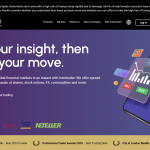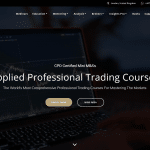A forex broker acts as an intermediary between traders and the global currency markets, providing the platform, pricing, and infrastructure necessary to buy and sell currency pairs. In 2025, forex brokers play a critical role in connecting retail and institutional traders to interbank liquidity, executing trades in real-time, and offering tools for analysis, leverage, and risk management.
This article explains how forex brokers work, how they make money, and what services they provide to traders globally.
What is a forex broker?
A forex broker is a licensed financial services provider that enables access to the foreign exchange market through online trading platforms. Traders use these brokers to speculate on price movements of currencies such as EUR/USD, GBP/JPY, or USD/CHF.
Brokers offer:
- Trading platforms (MT4, MT5, cTrader, WebTrader)
- Market pricing and real-time quotes
- Leverage and margin accounts
- Order execution and settlement
- Deposits, withdrawals, and account management
How forex brokers operate
1. Providing market access
Forex brokers connect traders to liquidity providers such as:
- Banks and prime brokers
- Non-bank financial institutions
- Electronic Communication Networks (ECNs)
Some brokers are direct market access (DMA), while others act as market makers who fill orders internally.
2. Offering trading platforms
Brokers offer interfaces like:
- MetaTrader 4 (MT4) and MetaTrader 5 (MT5)
- cTrader or custom-built platforms
- Mobile apps and web terminals
These platforms allow traders to:
- View live charts and price feeds
- Place and manage buy/sell orders
- Use technical indicators and scripts
- Run Expert Advisors (EAs)
3. Executing trades
Execution models include:
| Type | Description |
|---|---|
| Market Maker | Broker takes the opposite side of trades |
| STP | Orders are routed to liquidity providers |
| ECN | Orders are matched anonymously with market |
| Hybrid | Uses multiple execution types based on order size and type |
4. Enabling leverage and margin
Forex brokers provide leverage, allowing traders to open larger positions with small capital.
For example:
- With 1:100 leverage, a $100 margin controls a $10,000 trade
- Margin requirements vary by pair, broker, and regulation
5. Processing deposits and withdrawals
Forex brokers support:
- Credit/debit cards
- E-wallets (PayPal, Skrill, Neteller)
- Cryptocurrency
- Bank transfers
- Local payment gateways
They ensure client funds are segregated and often use KYC (Know Your Customer) verification.
6. Offering analytics and support
Top brokers provide:
- Economic calendars
- Daily/weekly market insights
- Webinars, tutorials, and education tools
- Multi-language support 24/5
How forex brokers make money
| Method | Explanation |
|---|---|
| Spreads | Markup between bid and ask price |
| Commissions | Flat fee per trade (usually on ECN accounts) |
| Swap Fees | Charges/credits for holding trades overnight |
| Markup on execution | Adjusting prices slightly for internal profit |
| Partner programs | Income via introducing brokers (IBs) and affiliates |
Regulated vs unregulated brokers
✅ Regulated brokers
- Licensed by authorities like FCA, ASIC, FSCA, CySEC
- Must follow strict financial conduct rules
- Provide segregated accounts and dispute resolution
⚠️ Unregulated brokers
- Often offshore and lightly supervised
- May offer high leverage and bonuses
- Higher risk of manipulation or fraud
What to check before using a broker
- Regulatory licence number (check on regulator’s website)
- Account types (Standard, ECN, Islamic, etc.)
- Trading conditions (spread, commission, leverage)
- Platform options and order types supported
- Reputation and client reviews
Example: Typical trade execution flow
- You place a buy order on EUR/USD at 1.1050
- The broker routes your order (STP) to its liquidity pool
- Liquidity provider fills your order and confirms execution
- The broker displays the trade on your platform
- If you close it at 1.1070, your profit is calculated and recorded
- You can withdraw the profit via the method used for deposit
Key takeaways
- A forex broker is the gateway between you and the global currency market
- Brokers provide platforms, liquidity, leverage, and execution infrastructure
- They earn via spreads, commissions, swaps, and rebates
- Choosing a regulated broker is vital for fund safety and fair treatment
- Always understand your broker’s execution model, fees, and platform tools
Frequently Asked Questions
What is a forex broker?
A forex broker is a financial intermediary that enables traders to buy and sell currency pairs using a trading platform.
How does a forex broker make money?
Brokers earn via spreads, commissions, and overnight swap fees, depending on the account type and model used.
Do I need a broker to trade forex?
Yes. You need a licensed broker to access the forex market through a trading platform and liquidity network.
Are all forex brokers safe?
No. Only regulated brokers with transparent practices and licensed operations are considered safe for trading.
What platforms do forex brokers use?
Most brokers offer MT4, MT5, or cTrader, and some have their own proprietary platforms.




Leave a Reply
Please log in or register to share your thoughts.